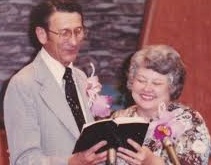“And he said unto another, Follow me. But he said, Lord, suffer me first to go and bury my father. Jesus said unto him, Let the dead bury their dead: but go thou and preach the kingdom of God” (Luke 9:59-60).
No one who teaches this passage believes that this man’s father was at the morgue or even on hospice. The father was probably old and would perhaps die within a few years. If the young man left home, he would lose his inheritance. He did not refuse to follow Jesus; he just said it would have to be later. He said, “Let me do what I want to do first, what I think is best for me.” Jesus was concerned about the multitudes scattered as lost sheep without the knowledge of the kingdom of God, and He wanted the young man to help reach them. But, it did not fit the young man’s plans and aspirations.
The young man’s response to Christ’s command is the typical one of most Christian young people today. They say that preaching the kingdom of God is a good thing—for someone else to do. Following Jesus would be fine—as long as He is going where they plan to go and will not interfere with what they plan to do. Many are saying, “Lord, I will follow you later, after I have lived out my dream. I have a certain career in mind, and it is not being a missionary.” That career then occupies the best years of their lives. And they become too old to go to the difficult places where those outside the kingdom live.
The young man thought his idea was better than that of Jesus. His financial advisor certainly thought it was a better and more profitable plan. None of his friends were following Jesus to the mission field; they were choosing their own careers. And of course, his mama and daddy certainly thought he should stay home because they looked forward to spending their last days playing with the grandchildren.
The lost sheep, ignorant of the kingdom of God, were the last thing on this young man’s mind. He did not know them. He felt no obligation to sacrifice his plans for them. Nobody he knew seemed to be concerned about them, so why should he be concerned? What right did Jesus have to tell him what to do with his life anyway?
Why do we think it is okay for a Christian young person to choose what he is going to do for the rest of his life? Why do we applaud him for planning and preparing for an honorable profession of his choosing? Have you ever heard a preacher denounce this as the sin of rebellion? If a Christian is not submissive and honestly seeking God’s will, what else is it but rebellion? Someone is going to say, “Maybe it is not God’s will for all the young people to go to the mission field.” That is true, but do you think for a moment that all these saved young people are honestly seeking God’s will? Are they presenting themselves as living sacrifices and making themselves available for missionary service? Are they letting God make the decision about their future? You and I both know that most of them are not.
A middle-aged man, whom we will call Frank, grew up on the mission field. He is bilingual and capable of preaching the Gospel in his second language in countries in Africa as well as in North, Central, and South America. He could also go somewhere else and learn a third language. He lives right, works hard, supports his family, pays his tithe, and teaches in his church. But several years ago, instead of going to preach the kingdom of God in the regions beyond, he chose to “bury the dead.” Frank began an excavating business and has spent his life doing what the spiritually dead could have done. If he can choose to operate a backhoe, why can he not choose to go to the mission field?
Someone needs to dig graves; dead bodies must be buried. But does the backhoe need to be operated by a Christian? What would make a saved person a better grave digger than an unsaved one? The lost man cannot go to the mission field to rescue the scattered, lost sheep, but the Christian can. Someone needs to sell life insurance, repair vehicles, build houses, unstop drains, milk cows, put out fires, and arrest bad guys. But, these jobs could be done by spiritually dead people.
So, what is the big deal if a young man decides what he will do with his life? The big deal is the big lake of fire where all those lost, scattered sheep will spend eternity separated from God. God wants them to live forever in His kingdom! While self-willed, rebellious, selfish, churchgoing, young people spend their lives doing what lost people could do, billions of lost souls wait for the Good News of the kingdom of God. In many places, the message that will most likely never arrive. If it were you bowing to an idol in Cambodia, or praying five times a day toward Mecca, or kneeling before a saint made of plaster with your hope in the pope, you might realize it is a big deal. If you were standing at the great white throne judgment without Christ, without hope, and about to hear the words of Jesus “depart from me” you would wish that someone would have gotten off his backhoe or laid down his shovel and brought you the Gospel.
Oh, dear Lord of harvest, help our people, especially the young ones, to stop making their own choices and let You choose. Help them to listen to the plea for help that is coming from distant places instead of the advice of the guidance counselor telling them about all the opportunities for lucrative careers that are theirs for the choosing. Help them to hear Your words, “Let the dead bury their dead: but go thou and preach the kingdom of God.”

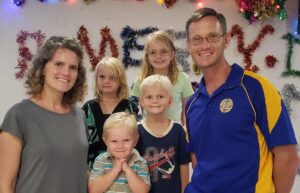
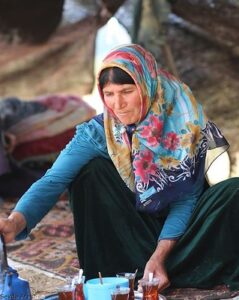
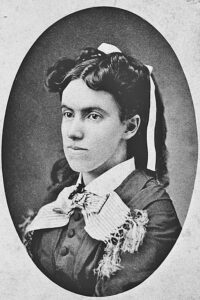
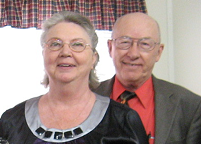 On May 10, 1968, the pastor’s wife and another lady from Beacon Hill Baptist Church in Dallas, Texas, were visiting new arrivals in their area. The house they planned to visit had whiskey bottles in the front window. The intended message was “Bad people live here; don’t mess with them.” The residents, Robert and Linda Huddleston, had bought the house and recently moved in. They had met at the Player’s Lounge where Linda was a bartender. The church ladies considered skipping this house, but they didn’t. Instead they won Bob and Linda to Christ!
On May 10, 1968, the pastor’s wife and another lady from Beacon Hill Baptist Church in Dallas, Texas, were visiting new arrivals in their area. The house they planned to visit had whiskey bottles in the front window. The intended message was “Bad people live here; don’t mess with them.” The residents, Robert and Linda Huddleston, had bought the house and recently moved in. They had met at the Player’s Lounge where Linda was a bartender. The church ladies considered skipping this house, but they didn’t. Instead they won Bob and Linda to Christ!
